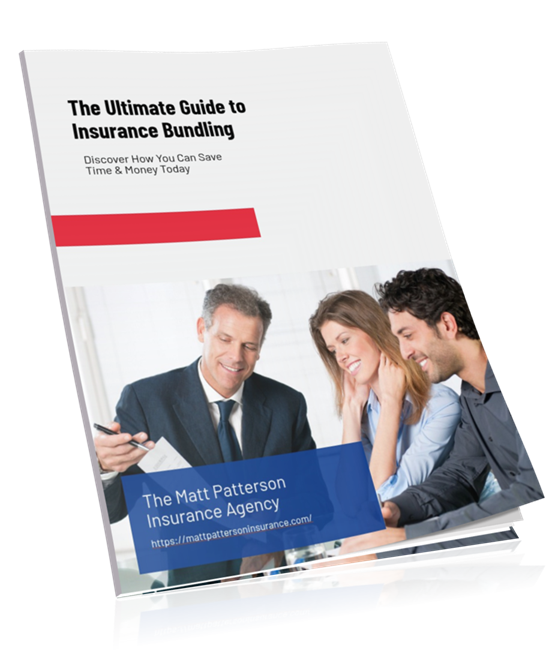Business insurance is essential for small and medium-sized businesses (SMBs) and professional firms of all types and sizes. It acts as a safety net, protecting against a variety of risks that can threaten financial stability. Consider the following points:
- Adequate coverage prevents devastating financial losses.
- It mitigates risks associated with everyday operations.
- Different types of business insurance cater to specific industry needs.
Understanding San Marcos business insurance ensures your organization is prepared for unforeseen events, safeguarding your business’s future.
Understanding Business Insurance
Business insurance is a contract between a business and an insurance provider, designed to protect against financial losses resulting from various risks. It encompasses various types of business insurance tailored to mitigate specific threats. Coverage can include protection against:
- Liability claims: Lawsuits arising from bodily injury or property damage.
- Property damage: Losses related to physical assets such as buildings and equipment.
- Employee injuries: Costs associated with on-the-job accidents.
Insurance plays a crucial role in risk management by transferring potential financial burdens from the business owner to the insurer. This transfer allows businesses to focus on growth and operations rather than worrying about unforeseen liabilities.
Essential Types of Business Insurance for SMBs and Professional Firms
1. General Liability Insurance
General liability insurance is a cornerstone for any business, providing essential coverage against various risks. This type of insurance primarily covers:
- Bodily Injury: Protection against claims from individuals who sustain injuries while on your business premises.
- Property Damage: Coverage for damages caused to someone else’s property during your business operations.
Having general liability insurance is crucial for all businesses due to the unpredictable nature of risks involved in daily operations. It acts as a financial shield, preventing out-of-pocket expenses that could arise from lawsuits or claims from clients, customers, or vendors.
Consider the following scenarios where general liability insurance proves invaluable:
- A customer slips and falls in your store, leading to medical expenses and potential legal action.
- Your team accidentally damages a client’s property while performing services at their location.
In both instances, general liability insurance can cover legal fees, settlement costs, and medical bills. Such protection not only helps maintain financial stability but also enhances credibility with clients and stakeholders by showing that you take risk management seriously.
As you evaluate, it’s clear that general liability insurance should be at the top of your list. The peace of mind it offers allows you to focus on growing your business rather than worrying about unforeseen incidents that could jeopardize your operations.
2. Commercial Property Insurance
Commercial property insurance is essential for safeguarding your physical assets, including:
- Buildings: Protects against damages from fire, vandalism, or natural disasters.
- Equipment and Inventory: Covers loss or damage to tools, machinery, and stock.
This coverage is crucial for any business that owns or leases premises. It mitigates financial losses due to unforeseen events affecting your workspace.
Consider scenarios like a fire damaging your office, leading to costly repairs and loss of income. Without commercial property insurance, you could face substantial out-of-pocket expenses. Having this protection ensures you’re prepared for unexpected disruptions in your operations.
3. Workers’ Compensation Insurance
Workers’ compensation insurance is a critical component of business insurance for organizations with employees. Here are key aspects to consider:
- Legal Requirements: Most states mandate that businesses carry workers’ compensation insurance if they have employees. Compliance is essential to avoid penalties.
- Benefits for Employers and Employees: This coverage protects businesses from lawsuits related to on-the-job injuries or illnesses, while also providing medical benefits and wage replacement for affected employees.
- Common Misconceptions: Many believe that workers’ compensation only benefits employees. It also shields employers from financial losses associated with workplace accidents, fostering a safer work environment.
Understanding these facets of workers’ compensation insurance is vital as you explore the range of coverage options available, including general liability insurance, commercial property insurance, and professional liability insurance.
4. Professional Liability Insurance
Professional liability insurance is essential for service-based industries such as consulting, healthcare, and legal services. This type of coverage protects against claims arising from errors or omissions in the services provided by professionals. Key aspects include:
Coverage examples include:
- Mistakes in providing professional advice
- Negligence leading to financial loss for clients
- Failure to deliver promised services
Having professional liability insurance safeguards your reputation and financial well-being. It ensures that even if a client files a complaint, you can defend yourself without bearing the entire financial burden. This layer of protection is vital in maintaining trust and credibility with clients while operating in high-stakes environments.
5. Cybersecurity Liability Insurance
Cybersecurity liability insurance has become increasingly important. With the rise in data breaches and cyberattacks, businesses are facing greater threats, making this coverage essential. Here are the key points to understand:
Coverage Areas
Cybersecurity liability policies usually cover the following costs:
- Data breach response
- Customer notification expenses
- Legal fees associated with lawsuits
Financial Consequences
Without this protection, businesses are at risk of facing significant financial consequences, such as:
- Loss of revenue due to operational downtime
- Fines from regulatory bodies
- Damage to reputation affecting customer trust
When considering the types of business insurance that SMBs and professional firms need, cybersecurity liability insurance should be a top priority.
6. Commercial Auto Insurance
Commercial auto insurance provides coverage for vehicles used in business operations, such as delivery services or transportation companies. This insurance is essential for protecting against liabilities that arise from accidents involving business-owned vehicles.
Key considerations when obtaining commercial auto coverage include:
- Assessing Vehicle Value: Ensure adequate limits based on the value of the vehicles being insured.
- Type of Coverage: Choose between liability, collision, and comprehensive coverage tailored to your operations.
- Driver Qualifications: Verify that drivers meet necessary qualifications and have clean driving records to lower risks.
Having commercial auto insurance safeguards your business against unexpected financial burdens resulting from vehicle-related incidents.
7. Business Income Insurance
Business income insurance is essential for any company that may face operational disruptions due to unforeseen events, such as natural disasters or fire damage. This coverage provides critical financial support during recovery periods when standard operations cannot continue.
- Reimbursement for Lost Income: It compensates for revenue losses resulting from business interruptions.
- Ongoing Expenses Covered: Helps manage ongoing expenses, including rent, salaries, and loan payments, ensuring continuity even when the business is temporarily closed.
Having adequate business income insurance safeguards your organization against financial strain during challenging times.
8. Directors and Officers (D&O) Insurance
Directors and Officers (D&O) Insurance is designed to protect corporate executives from personal liabilities that may arise from decisions made while serving on behalf of their organization. Key aspects include:
- Protection against lawsuits: D&O coverage safeguards against claims related to management decisions, including breaches of fiduciary duty or mismanagement.
- Importance for startups: Startups often face heightened scrutiny from investors and stakeholders. Having D&O insurance becomes crucial as these entities may hold executives accountable for financial missteps.
This type of insurance not only provides a safety net for leaders but also enhances the credibility of the organization in the eyes of investors and partners.
9. Commercial Umbrella Insurance
Commercial umbrella insurance provides an essential safety net for businesses, extending beyond existing primary coverages such as general liability insurance, commercial property insurance, and workers’ compensation insurance. This type of policy fills coverage gaps left by other policies, offering additional liability limits.
Key scenarios where commercial umbrella insurance proves invaluable:
- Catastrophic accidents: Involving multiple parties, these incidents can quickly exceed standard policy limits.
- Lawsuits: High-stakes legal situations may arise from professional liability claims or data breaches, necessitating extra coverage.
Investing in a commercial umbrella policy enhances your overall risk management strategy, ensuring greater financial protection for your business.
Find Out What’s Best for Your Organization Today
Selecting the right business insurance is essential for protecting your organization from unforeseen risks. To ensure you have the appropriate coverage, consider the following steps:
1. Assess Your Risks
- Identify potential risks specific to your industry.
- Evaluate the assets and operations that require protection.
2. Consult with an Insurance Professional
- Seek guidance from an experienced insurance agent or broker.
- Discuss your unique needs and ask about tailored coverage options.
3. Review Coverage Options
- Understand different types of insurance available, such as liability, property, and workers’ compensation.
- Consider industry-specific policies that may enhance your protection.
4. Compare Quotes
- Obtain quotes from multiple providers.
- Analyze the coverage limits and deductibles to find the best value for your budget.
5. Regularly Reassess Your Insurance Needs
- Business needs change over time; schedule periodic reviews of your policies.
- Adjust coverage as necessary to keep pace with your growth and any new risks.
Taking these steps helps ensure that you secure comprehensive protection for your business while mitigating financial risks effectively. Prioritize informed decision-making to maintain stability and resilience.
Frequently Asked Questions About Business Insurance
What is business insurance and why is it important for SMBs and professional firms?
Business insurance is a type of coverage that protects businesses from financial losses due to various risks, including property damage, liability claims, and employee injuries. For small to medium-sized businesses (SMBs) and professional firms, adequate business insurance coverage is crucial for safeguarding financial stability and mitigating risks faced in their operations.
What are the essential types of business insurance needed by SMBs and professional firms?
SMBs and professional firms typically require several types of business insurance, including general liability insurance, commercial property insurance, workers’ compensation insurance, professional liability insurance, cybersecurity liability insurance, commercial auto insurance, business income insurance, directors and officers (D&O) insurance, and commercial umbrella insurance.
What does general liability insurance cover for businesses?
General liability insurance covers claims related to bodily injury and property damage that occur as a result of business operations. This coverage is crucial for all businesses as it protects against lawsuits and claims that can arise from accidents or incidents involving customers or third parties.
Why is workers’ compensation insurance legally required for businesses with employees?
Workers’ compensation insurance is legally required in most jurisdictions to protect employees who suffer work-related injuries or illnesses. It provides benefits such as medical expenses and wage replacement for injured workers while protecting employers from lawsuits related to workplace injuries.
How does cybersecurity liability insurance benefit businesses today?
Cybersecurity liability insurance is increasingly relevant as businesses face greater risks of data breaches and cyberattacks. This coverage helps businesses manage the costs associated with responding to data breaches, including legal fees, notification costs, and credit monitoring services for affected individuals. When seeking the right protection, partnering with a business insurance agency in San Marcos TX can help you find appropriate solutions for your company’s needs.
What is the role of business income insurance during unforeseen events?
Business income insurance provides financial support to businesses during periods when they cannot operate due to unforeseen events like natural disasters or fire damage. It helps reimburse lost income and cover ongoing expenses during the recovery phase after such incidents occur. To further explore your options, contact us today to discuss your options for insurance coverage in San Marcos.








